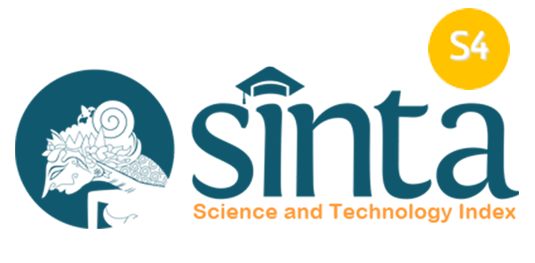Effect of Guided Inquiry and Explicit-Instructional Strategies on Lower Basic Students’ Academic Performance in Mathematics
Abstract
Keywords
Full Text:
PDFReferences
Adeyemi, T. O. (2008). Teachers’ teaching experience and student’s learning outcomes in secondary schools in ondo state. Educational Research and Review, 3(6), 204-212.
Babatunde, D. (2019). A comparative study of upper basic science students’ academic performance in public and private school in Taraba State., Nigeria. Journal of Research in Humanities and Social Science, 7(3), 26 – 31.
Bolaji, H. O., and Adeoye , M. A. (2022). Accessibility , usability , and readiness towards ICT tools for monitoring educational practice in secondary schools in Ilorin metropolis. Indonesian Journal of Multidiciplinary Research, 2(2), 257-264.
Camenda, D. Y., Gaba, C. A., Lacord, N., Natango, D., Pabl, A., and Abusam, H. (2021). How difficult is 1+1? A phenomenological study of high school students struggling in mathematics. ASEAN Journal of Science and Engineering Education, 1(2), 111-116.
Ezeoba, K. O., Obi, R. O., and Olibie, E. L. (2013). Competency-Based education for achieving standard through micro-teaching practicum in teacher education: Implication for capacity building and sustainable development. Nigeria Journal of Professional Teachers, 3, 51 – 63.
Ezeugo, N. C., and Agwagah, U. N. V. (2000). Effects of concepts mapping on students performance in algebra; implication for secondary school mathematics education 21st century. Abacus Journal of Mathematics Association of Nigeria, 25(1), 1 – 12.
Hashim, S., Masek, A., Mahthir, B. N. S. M., Rashid, A. H. A., and Nincarean, D. (2021). Association of interest, attitude and learning habit in mathematics learning towards enhancing students’ achievement. Indonesian Journal of Science and Technology, 6(1), 113-122.
Husnah, A. U., Hidayat, M. A., and Jannah, M. (2021). The journey of a math: As a mathematics learning innovation. Indonesian Journal of Multidiciplinary Research, 1(1), 129-136.
Jegede, S. A., and Fatoke, A. O. (2014). the effects of problem-solving instructional strategy, three modes of instruction and gender on learning outcomes in chemistry. Journal of Education and Practice, 5(23), 179 – 184.
Kroesbergen, E. H., and Van Luit, J. E. H. (2003). Mathematics interventions for children with special educational needs. Remedial and Special Education, 24(2), 97–114.
Leghara, B. N. (2008). Strategies for supporting children's active participation in Primary Science. Journal of Business and General Education, 2(1), 1-7.
Liu, Q. X., and Shi, J. F. (2007). Analysis of language teaching approaches and methods: effectiveness and weakness. US-China Education Review, 4(1), 69–71.
Makondo, P. V., and Makondo, D. (2020). Causes of poor academic performance in mathematics at ordinary level: a case of mavuzani high school, Zimbabwe. International Journal of Humanities and Social Science Invention (IJHSSI), 9(6), 10 – 18.
Maryati, W. E., Retnowati, E., and Thoe, N, K. (2022). Learning mathematics formulas by listening and reading worked examples. Indonesian Journal of Teaching in Science, 2(1), 61-74.
Nnamani, S. C., and Oyibe, O. A. (2016). Gender and academic achievement of secondary school students in social studies in Abakaliki Urban of Ebonyi State. British Journal of Education, 4(8), 72 – 83.
Nwagbo, C. (2006). Effects of two teaching methods on the performance in and attitude to biology of students of different levels of scientific literacy. International Journal of Educational Research, 45(3), 216 – 229.
Nwanekezi, A. U. (2018). Effects of guided inquiry and task hierarchy analysis model in cooperative learning strategy on chemistry students’ performance in Imo State. European Scientific Journal, 14(25), 54 – 62.
Olibie, E. I., and Ezeoba, K. O. (2014). Ability and location differences in the effects of guided inquiry on nigerian students’ achievement in social studies curriculum. Journal of Education and Human Development, 3(4), 335-344.
Raba, A. A. A. (2017). The influence of think-pair-share (tps) on improving students oral communication skills in EFL classrooms. Creative Education, 8, 12 – 23.
Swanson, H. L. (2001). Searching for the best model for instructing students with learning disabilities. Focus on Exceptional Children, 34(2), 1-15.
Tella, A. (2013). The effect of peer tutoring and explicit instructional strategies on primary school students learning outcomes in mathematics. Bulgarian Journal of Science and Education Policy (BJSEP), 7(1), 5-25.
Ugwu, S. H. (2015). Impact of guided inquiry instructional on chemistry students’ performance in Ikwuato local government area, Abia State. Nigeria. Journal of Science and Technical Education, 4(1), 112-125.
Ukata, P. F., Wechie, N., and Nmehielle, E. L. (2017). Instructional strategies and teaching of business education in higher institutions in Rivers State. International Journal of Education and Evaluation. 3(9), 20-36.
Uloaku, E. I. (2015). Think-pair-share cooperative learning strategy and physics students’ academic achievement in Abia State, Nigeria. International Journal of Educational Research and Technology, 1(1), 49-57.
VaraidzaiMakondo, P., and Makondo, D. (2020). Causes of poor academic performance in mathematics at ordinary level: A case of Mavuzani High School, Zimbabwe. International Journal of Humanities and Social Science Invention (IJHSSI), 9(1), 10-18.
DOI: https://doi.org/10.17509/ijotis.v3i1.54191
Refbacks
- There are currently no refbacks.
Copyright (c) 2023 Universitas Pendidikan Indonesia

This work is licensed under a Creative Commons Attribution-ShareAlike 4.0 International License.
Indonesian Journal of Teaching in Science (IJoTIS) is published by Universitas Pendidikan Indonesia (UPI)
 Indonesian Journal of Teaching in Science
Indonesian Journal of Teaching in Science



